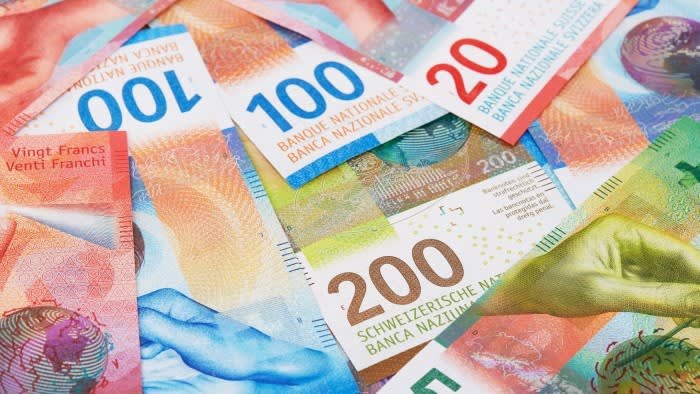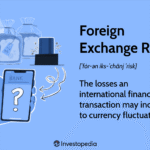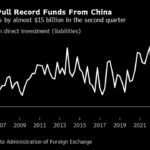Unlock the Editor’s Digest for free
Roula Khalaf, Editor of the FT, selects her favourite stories in this weekly newsletter.
Switzerland has agreed with the US that it will not manipulate its currency, in a rare joint statement widely seen as a “green light” for further intervention by the country’s central bank to restrain a rise in the franc.
The Swiss National Bank and the US Treasury on Monday issued a declaration formally aligning their views on foreign exchange matters, with both countries promising not to “target exchange rates for competitive purposes”. The statement also recognised that market interventions are a valid tool for addressing currency volatility or “disorderly” moves in exchange rates.
“The US is recognising the SNB’s right to intervene. So it could be seen as a green light if they choose to do so again in future,” said Lee Hardman, currency strategist at MUFG.
The announcement follows years of tension over Switzerland’s currency interventions, which have seen the SNB frequently wading into markets to curb the strength of the franc. The currency often rises in times of market stress due to its role as a safe haven for investors, which weighs on exports and drags down inflation, making the exchange rate a critical focus for the SNB.
The Alpine country was placed on a US Treasury watch list for currency and economic practices in June, having been designated a currency manipulator by the US during President Donald Trump’s first term in 2020.
The Swiss franc has surged this year as investors sought refuge from Trump’s trade war, driving the dollar down 12 per cent to under SFr0.80 for the first time since the franc’s shock appreciation back in 2015.

The rise in the currency, combined with the threat from US tariffs, has threatened to push inflation, which dipped briefly into negative territory earlier this year, further below the SNB’s target.
But the agreement with Washington gives the central bank greater room for manoeuvre if the franc’s rise resumes, analysts say.
Stefan Gerlach, chief economist at EFG, said easing tension between Bern and Washington reduces the risk of a political backlash if the SNB needs to weaken the franc once more, by intervening in markets or by cutting interest rates.
At its decision last week to hold the interest rate steady, the SNB highlighted that inflation had risen slightly from minus 0.1 per cent in May to 0.2 per cent in August.
Traders have trimmed some of their bets on a move to negative interest rates, with the market now ascribing a roughly one in four chance of such a move, according to levels implied by derivatives markets.
The timing of the announcement is notable as Switzerland battles higher tariffs from the US. The Trump administration in August raised duties on key Swiss exports to 39 per cent, including watches and cheese, creating fresh strains in bilateral ties.
“I think that this statement — despite being not legally binding and confirming existing practices — can be interpreted as a renewal of bilateral relations and practices in a complicated time,” said Edoardo Beretta, a professor specialising in political economy at the Università della Svizzera italiana.




















